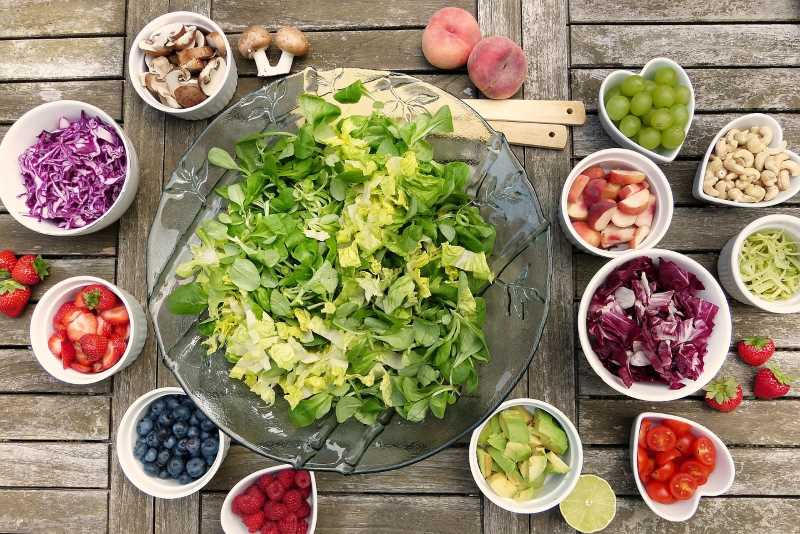Mexico's Nutritional Transition: Challenges and Opportunities
Mexico faces a nutritional transition from traditional to processed diets. To combat rising unhealthy eating habits, promoting sustainable agriculture and affordable, nutritious options is vital. Collaboration between stakeholders can pave the way for a healthier, greener future.

In Mexico, a profound nutritional transition is underway, where traditional diets are giving way to the consumption of processed and ultra-processed products. Additionally, changes in food production methods are impacting the country's food landscape. During the monthly session of the Permanent Seminar on Agriculture, Food, and Sustainability, organized by the University Program for Sustainable Food (PUAS) at the National Autonomous University of Mexico (UNAM). Experts discussed the challenges and opportunities in achieving healthy and sustainable diets in the country.
Shifting Dietary Patterns
A healthy diet is one that provides adequate calories, is safe, includes diverse food groups, and is culturally appropriate, respecting the unique traditions of each community. However, Mexico is currently undergoing a nutritional shift marked by a transition from traditional diets rich in legumes, maize, fruits, and vegetables to more industrialized, globalized, and Westernized diets. These modern diets are characterized by a high intake of refined sugars, saturated fats, and animal products.
Disturbingly, around 50 percent of the Mexican population now follows dietary patterns that are far from healthy. The prevalence of Western dietary habits, such as consuming sugary beverages, processed meats, high-sodium foods, fried items, and alcohol, is on the rise. This shift is the result of a complex interplay of factors. On one hand, it's influenced by ethnic background, socioeconomic status, gender, education, health conditions, and genetic predispositions. On the other hand, psychosocial aspects such as preferences, habits, family influence, social norms, and upbringing practices also play a significant role. Furthermore, the food environment surrounding individuals strongly influences their food choices.
Addressing this challenge involves modifying these factors, either directly or indirectly, to encourage a transition towards plant-based, traditional, basic, rural, prudent, sustainable, and healthier diets while reducing the reliance on industrialized foods.
Transformations in Food Production
The evolution of food production in Mexico has witnessed significant changes. Agricultural practices have shifted towards intensification, characterized by the increasing use of machinery, fertilizers, and genetically improved crops. While this has boosted productivity, it has also come at the cost of impacting the environment and depleting natural resources.
Modernization in animal production is another area that has seen significant growth, fueled in part by trade agreements with neighboring countries. The rise in animal production has led to increased exports of eggs, chicken, pork, and beef. This expansion presents two critical challenges. Firstly, managing the waste generated by intensive production systems becomes paramount. Secondly, the homogenization of ecosystems due to the expansion of large-scale animal production has implications for biodiversity and ecosystem health.
Moreover, agriculture, especially small-scale and irrigated farming, faces challenges from erratic weather patterns and droughts. This necessitates adaptation and modernization to ensure sustainable water usage.
To tackle these challenges, improving the organization of agricultural production, whether at the family or business level, becomes crucial. Farmers need to make informed decisions about crop choices based on local and regional contexts, while considering market demands and historical data from previous cycles.
The Cost of Healthy and Sustainable Diets
A concerning trend is the increasing cost of foods with higher nutritional value, making them less affordable for many consumers. On the other hand, less nutritious options have remained stable or even decreased in price, leading to a widening gap between nutritious and unhealthy choices.
To promote healthy and sustainable diets, researchers conducted a study simulating various diet models in Mexico using a mathematical approach and then associated the diets with market prices to estimate their cost. Surprisingly, the cost of adopting healthy and sustainable diets, similar to those proposed by the EAT-Lancet report, was found to be 21 percent lower than the Mexican Dietary Guidelines published in 2015.
The EAT-Lancet report, a comprehensive scientific study on healthy diets and sustainable food systems, offers insights into transforming global food systems to ensure both human and planetary well-being. In contrast, the Dietary Guidelines provide recommendations on daily nutrient intake, hydration, food to avoid, and suitable physical activity for maintaining good health.
One significant obstacle to the adoption of healthy diets worldwide is cost, but the affordability depends on the context and the country. In Mexico, the evidence suggests that such diets are economically viable. Therefore, leveraging the existing health sector's Dietary Guidelines could serve as a powerful tool to promote healthy eating habits. Designing targeted programs and policies focused on supporting healthy and sustainable diets would further reinforce these efforts.
Conclusion
Mexico's nutritional transition poses a complex challenge for public health and sustainability. The shift towards processed and unhealthy diets, coupled with changes in food production practices, demands immediate attention. Encouraging a return to traditional, culturally appropriate, plant-based diets, while promoting sustainable agricultural practices, is essential.
Moreover, narrowing the affordability gap between healthy and unhealthy foods is crucial to making nutritious choices more accessible to all segments of society. By embracing the findings and recommendations from scientific studies like the EAT-Lancet report and integrating them into the Mexican Dietary Guidelines, Mexico can pave the way for a healthier and more sustainable food future. Policymakers, businesses, and individuals must collaborate to address these challenges and create a robust framework that supports the transformation towards a more nourishing and environmentally friendly food system. In doing so, Mexico can serve as a model for other nations facing similar nutritional transitions, driving positive change on a global scale.




